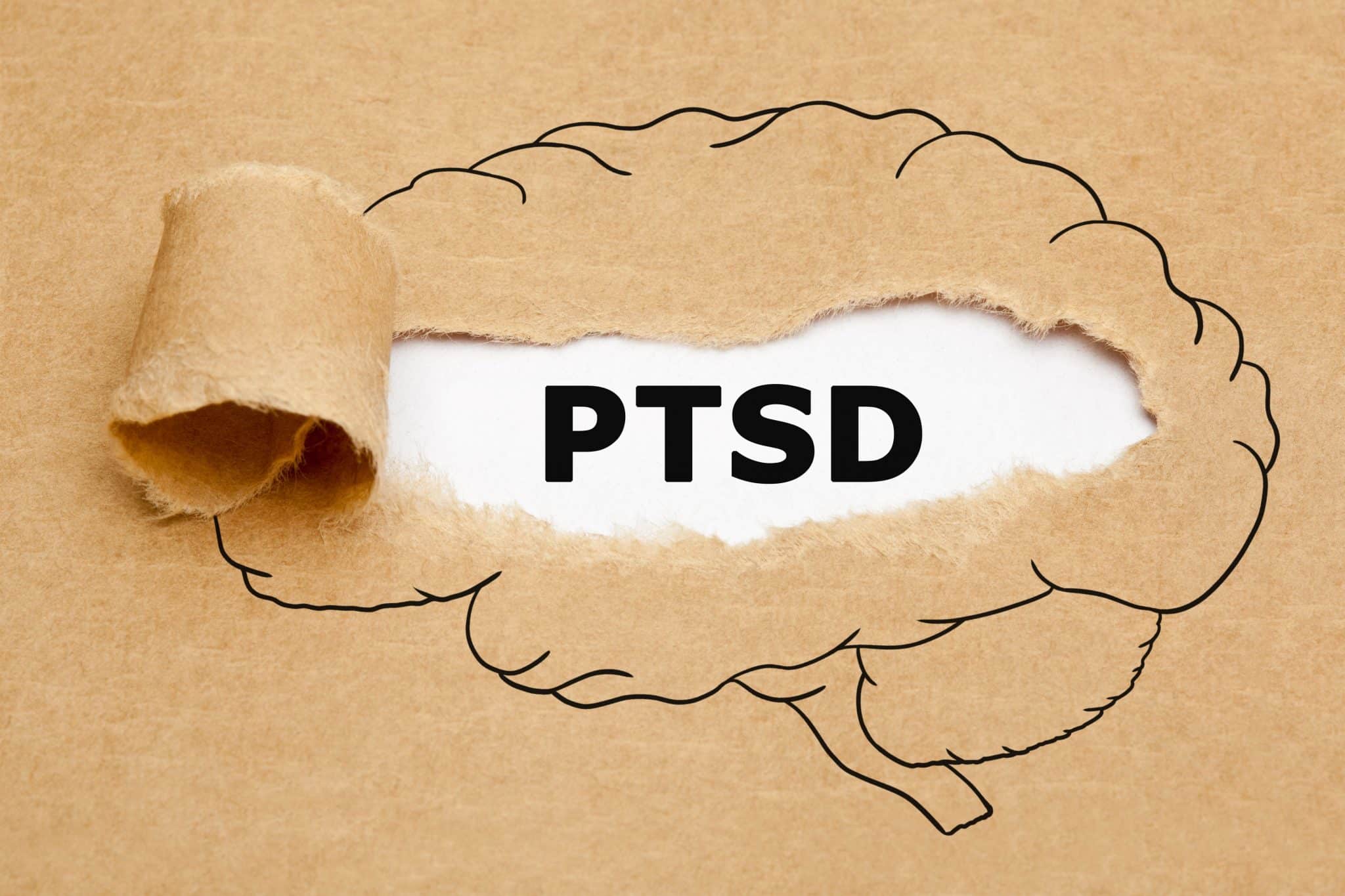Post-traumatic stress disorder (PTSD) is a mental, emotional, and behavioural response to a traumatic event or a series of traumatic events in which a person was directly or indirectly involved.
Reactions to a profoundly disturbing experience may vary from person to person. Psychotherapist Gabor Mate defines trauma as “not what happens to you externally but what happens internally to you as a result of it”.
For example, some people may survive or witness trauma and never develop post-traumatic stress disorder. On the other hand, some people may experience post-traumatic stress disorder symptoms as soon as one month after the stressful event.
Trauma comes from the Greek word for wounding. When we get wounded, a scar tissue forms, harder, less flexible and less resilient. After trauma we can become more rigid and less flexible.
PTSD is more common in some people than in others, according to research. Individuals who were victims of physical and sexual abuse as children, for example, are more vulnerable to acquiring PTSD when exposed to stress in adulthood.
Furthermore, women are twice as likely as men to get PTSD (PTSD affects 10 percent of females but only 4 percent of males).
However, in others, PTSD can manifest months or even years after a traumatic event, causing confusion, mental health concerns, and problems at school, work and in relationships if not addressed.
What is on this page
PTSD Symptoms
Anxiety and depression are the most common symptoms of post-traumatic stress disorder. Additionally, PTSD symptoms are often characterised by changes in physical and emotional reactions (known as arousal reactions), avoidance, intrusive memories, and negative mood and thought patterns.
If you have PTSD, you may experience some of the following symptoms:
Arousal symptoms
- Irritability
- Being constantly on alert for danger
- Having angry outbursts
- Excessive feelings of shame and guilt
- Problems falling asleep or staying asleep
- Difficulty concentrating
- Engaging in self-harm and other risky behaviours
Avoidance symptoms
- Avoid thinking about or talking about the trauma.
- Avoiding anything that reminds you of the traumatic event

Re-experiencing trauma
- Reoccurring, upsetting memories of the traumatic event (which are often accompanied by extreme physical reactions like sweating, racing hearts, etc.)
- Nightmares and disturbing dreams
- Flashbacks: reliving trauma as though it were occurring again
Changes in mood and cognition
- Feeling of hopelessness
- Loss of interest in activities you used to enjoy
- Problems remembering important parts of a traumatic event
- Negative thoughts about yourself and others
- Isolation
- Feeling disconnected from loved ones
- Difficulties controlling and expressing emotions
- Guilt
- Shame
- Fear
If you don’t address PTSD symptoms, they can interfere with your daily life and harm your health, increasing the risk of other mental health and behaviour problems, such as anxiety, eating disorders, depression, drug and alcohol abuse, or suicidal thoughts and actions.
PTSD symptoms can make it difficult to enjoy everyday life, feel good about yourself and see purpose in life. But PTSD can be treated successfully and help is available.
Help and healing
Some people with PTSD may believe their condition is all in their brains and will go away independently. However, PTSD is a mental health condition that does not go away without treatment. Also, PTSD symptoms can develop slowly, even over the years.
Counsellors and psychotherapists at Leone Centre understand that every person responds differently to a traumatic event. They are qualified and experienced to help you address trauma, work through your painful experience, and start healing and moving on with your life.

Prevention
Seek social support resources to deal with stress better after experiencing or witnessing a traumatic event and to avoid PTSD.
Post-traumatic stress disorder can be avoided by facing your feelings and letting them out. Remember that anger, anxiety and grief are normal emotional reactions to stress. Accept your emotions and discuss your feelings with your family, friends and professionals.
Also, prioritise self-care. Try to get enough sleep, eat healthy foods and work out often. Also, try mindfulness meditation or yoga. Keep a journal to note your thoughts and feelings, keep track of your symptoms and identify your triggers.
See a mental health professional if your anxiety and sadness are worsening and affecting your everyday life.
Therapeutic Approaches to PTSD
Trauma therapy and counselling for PTSD at the Leone Centre aim to reduce symptoms, teach clients coping skills and help them heal from trauma.
Different treatments help people who have been through trauma work through their experiences and find the strength they need to move on and heal.
The most effective treatments for PTSD involve:
- Cognitive-behavioural therapy (CBT)
- Eye movement desensitisation and reprocessing (EMDR)
- Emotionally-focused therapy (EFT)
- Brainspotting therapy
- Peter Levine’s somatic experience.
- Compassionate inquiry (Gabor Mate)
At the Leone Centre, we can support you if you require assistance in coping with symptoms and overcoming trauma, regardless of when it occurred in your life.

